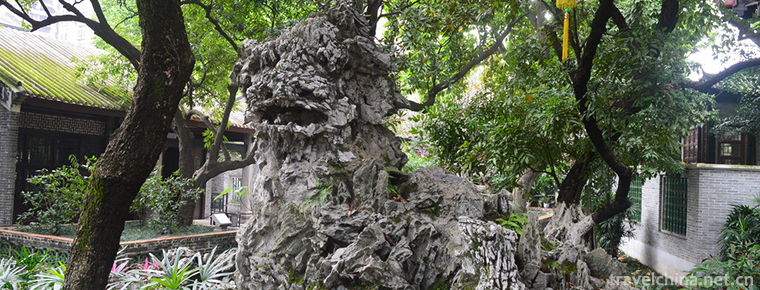2019-02-07

- By ChinaWiki.net
- Chinese Edition
- 2020-11-07
Former site of Brazil Conference
The former site of the Brazil conference, formerly known as Banyou temple, is located in Brazil township of Zoige county (which belonged to Songpan County before 1956) at the southeast border of Aba Prefecture and Gansu Province. It is near the edge of grassland and is a semi agricultural and semi pastoral Tibetan inhabited area, 32 kilometers east of Zoige county. The existing walls of the hall are 27.70 meters wide in the West and 33.7 meters in depth; the back hall is 14.50 meters wide and 6.22 meters deep, and the whole plane is in a "convex" shape. The hall wall is built and rammed with loess plate, the bottom width is narrow, the wall base thickness is 1.40 meters, and the residual height is 8.92 meters.
In December 2016, the former site of the Brazil conference was selected into the list of national red tourist attractions.
Introduction to scenic spots
The temple seat south to north, close to the Brazilian River, surrounded by mountains, dense forest. It was first built in the 18th year of Kangxi reign of the Qing Dynasty. The original appearance was quadrangle layout. The mountain gate was of double eaves and Xieshan roof structure. The main hall (Daxiong Hall) was a Tibetan flat roof building with wooden beams and columns and rammed earth walls. On September 9, 1935, the Political Bureau of the CPC Central Committee held the famous "Brazil conference" in the Grand Hall of Banyou temple against Zhang Guotao's Right opportunism. The meeting criticized Zhang Guotao's mistakes and decided that the Central Red Army should continue to march northward. After the meeting of the Political Bureau, Mao Zedong and other central leaders held a meeting of some commanders and fighters of the column and cadre group directly under the Central Committee in front of the grand xiongbao Hall of the temple that night. At the meeting, Mao Zedong pointed out: it is correct for the Party Central Committee to insist on the line of going north, and there is no way out to go south. The great historical significance of the Brazilian conference is just like Mao Zedong's "the Communist Party of China in the people" It is pointed out in the article "status in the ethnic war" that the Brazilian conference and the Yan'an conference opposed Zhang Guotao's Right opportunism, so that all the red army joined together and the whole party was more united. To carry out a heroic Anti Japanese struggle. In 1978, the people's Government of Sichuan Province listed the site of the Brazilian conference as a provincial cultural relic protection unit.
Climate of scenic spot
ABA has a mild climate with four distinct seasons. In the north, the climate is sub subtropical monsoon humid; in the south, the climate of mountainous area is divided into middle subtropical, north subtropical, south temperate and north temperate climate, which has the characteristics of three-dimensional mountain climate. The annual average temperature is 17.1 ℃ - 18.5 ℃, the annual average rainfall is 748.4-1184.2 mm, the sunshine is 1200-1400 hours, and the frost free period is 300-358 days. The land is fertile and the products are rich. It has the characteristics of the south of the Yangtze River.
Ask a Question
Your email address will not be published.



0 Questions